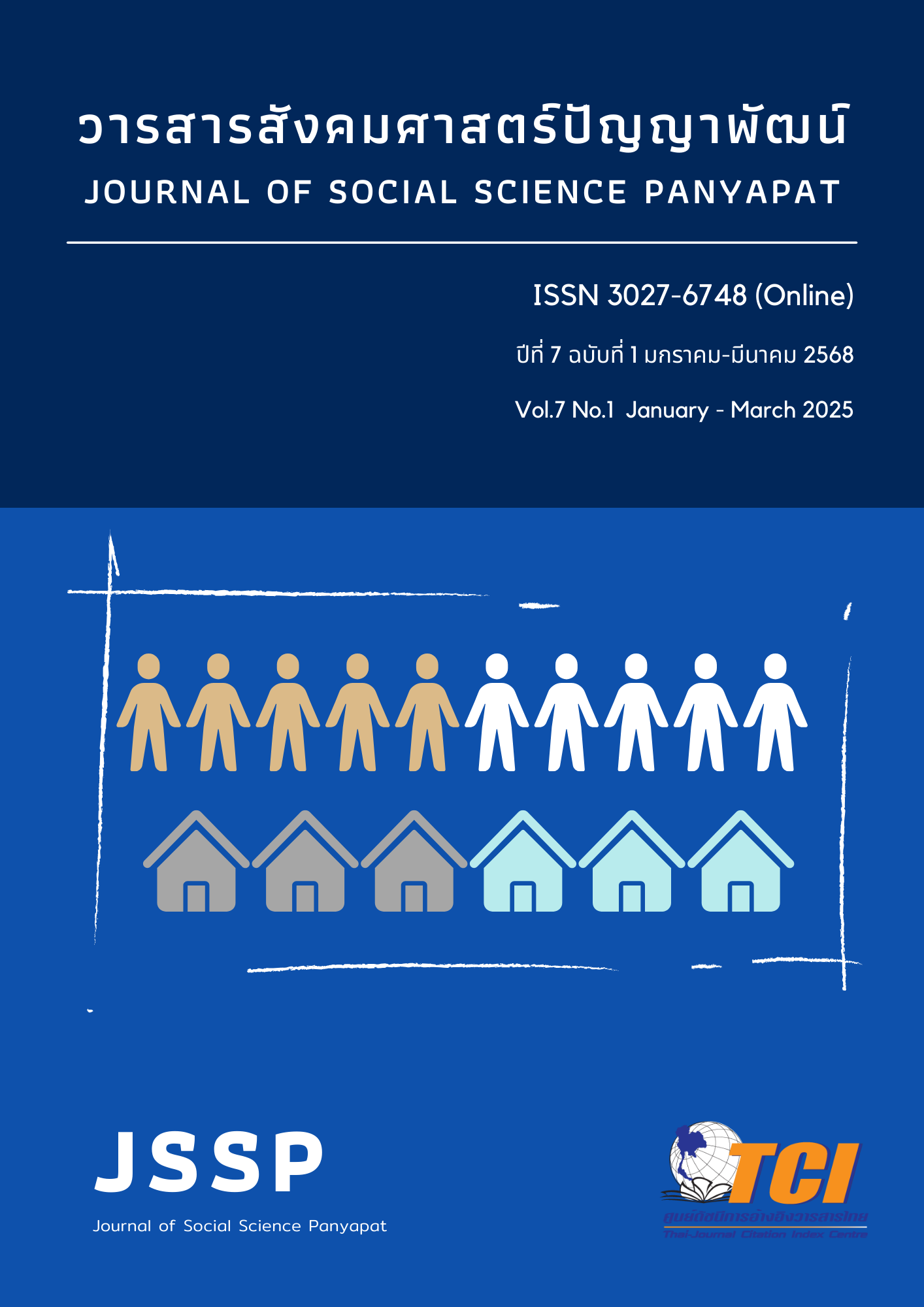The Development of Learning Achievement On “My House” For Grade 7 Students Through Game-Based Learning Approach with Multimedia
Keywords:
Learning Achievement, Game-Based Learning, MultimediaAbstract
This research aimed to (1) compare the learning achievement of Grade 7 students on “My House” before and after using the game-based learning approach with multimedia, and (2) study students' satisfaction with the game-based learning approach with multimedia. This pre-experimental research employed a one-group pretest-posttest design. The sample consisted of 20 Grade 7 students studying in the first semester of the 2024 academic year at Trangrangsarit School, selected through simple random sampling. The research instruments included: (1) multimedia materials on “My House,” (2) lesson plans incorporating the game-based learning approach with multimedia on “My House,” (3) an achievement test on “My House,” and (4) a student satisfaction questionnaire. Data were analyzed using mean, standard deviation, and a dependent sample t-test. The results of the study revealed that: 1) the learning achievement of Grade 7 students after learning through the game-based learning approach with multimedia was significantly higher than before learning, at the .05 significance level. 2) The students' satisfaction with the game-based learning approach with multimedia on “My House” was rated at the highest level.
References
กระทรวงศึกษาธิการ. (2551). หลักสูตรแกนกลางการศึกษาขั้นพื้นฐาน พุทธศักราช 2551. กรุงเทพฯ: โรงพิมพ์คุรุสภาลาดพร้าว.
กุลิสรา จิตรชญาวณิช และ เกศราพรรณ พันธุ์ศรีเกตุ คงเจริญ. (2563). วิธีการจัดการเรียนรู้ในศตวรรษที่ 21. กรุงเทพฯ: จุฬาลงกรณ์มหาวิทยาลัย.
เกียรติสุดา ชูประสิทธิ์. (2559). ผลการใช้วิธีสอนแบบบทเรียนผ่านเว็บควบคู่กับการใช้สื่อมัลติมีเดียที่มีต่อความสามารถในการอ่านจับใจความ และผลสัมฤทธิ์ทางการเรียนภาษาไทยของนักเรียนชั้นมัธยมศึกษาปีที่ 1 โรงเรียนเทศบาล 2 (วัดกะพังสุรินทร์). วารสารวิจัยมหาวิทยาลัยเทคโนโลยีราชมงคลศรีวิชัย, 8(2), 299-312
จุฑาทิพย์ กฐินทอง และ สุรัตนา อดิพัฒน์. (2565). การพัฒนาผลสัมฤทธิ์การเรียนรู้คำศัพท์ภาษาอังกฤษ โดยการจัดการเรียนรู้แบบใช้เกมเป็นฐานสำหรับนักเรียนชั้นมัธยมศึกษาปีที่ 1. วารสารพัฒนาการเรียนรู้สมัยใหม่, 7(4), 321-331.
ชญานิศ บำรุง. (2566). การพัฒนาการจัดการเรียนรู้แบบใช้เกมเป็นฐานที่มีต่อทักษะการพูดภาษาอังกฤษของนักเรียนชั้นประถมศึกษาปีที่ 3. (การศึกษามหาบัณฑิต, มหาวิทยาลัยมหาสารคาม.)
ณัฐพงศ์ มีใจธรรม และ ทำรงลักษณ์ เอื้อนครินทร์. (2564). การพัฒนาผลสัมฤทธิ์ทางการเรียนภาษาอังกฤษ โดยใช้เทคนิคเกมมิฟิเคชั่น (GAMIFICATION) สำหรับนักเรียนชั้นประถมศึกษาปีที่ 5. วารสารศึกษาศาสตร์ มหาวิทยาลัยบูรพา, 32(2), 76-90.
ทิศนา แขมมณี. (2560). รูปแบบการเรียนการสอน : ทางเลือกที่หลากหลาย. (พิมพ์ครั้งที่ 9). กรุงเทพฯ: จุฬาลงกรณ์มหาวิทยาลัย.
ธิดารัตน์ นคร. (2562). การพัฒนาการจัดกิจกรรมการเรียนรู้สถานการณ์จำลองประกอบสื่อมัลติมีเดีย วิชาภาษาอังกฤษ เรื่อง English for Daily Life ชั้นมัธยมศึกษาปีที่ 5 กลุ่มสาระการเรียนรู้ภาษาต่างประเทศ. วารสารเทคโนโลยีและสื่อสารการศึกษา, 2(6), 106-116.
โรงเรียนตรังรังสฤษฎ์. (2566). รายงานการพัฒนาคุณภาพการศึกษา. ตรัง: โรงเรียนตรังรังสฤษฎ์.
Cárdenas-Moncada, C., Veliz-Campos, M., & Veliz, L. (2020). Game-based student response systems: The impact of Kahoot in a Chilean vocational higher education EFL classroom. CALL-EJ, 21(1), 64-78.
Mayer, R. E. (2001). Multimedia learning. Cambridge: Cambridge University Press.
Thamarana, S. (2016). Use of multimedia technologies in English language learning: a study. International Journal of English Language Teaching, 4(8), 15-30.
Downloads
Published
How to Cite
Issue
Section
License
Copyright (c) 2025 Journal of Social Science Panyapat

This work is licensed under a Creative Commons Attribution-NonCommercial-NoDerivatives 4.0 International License.


